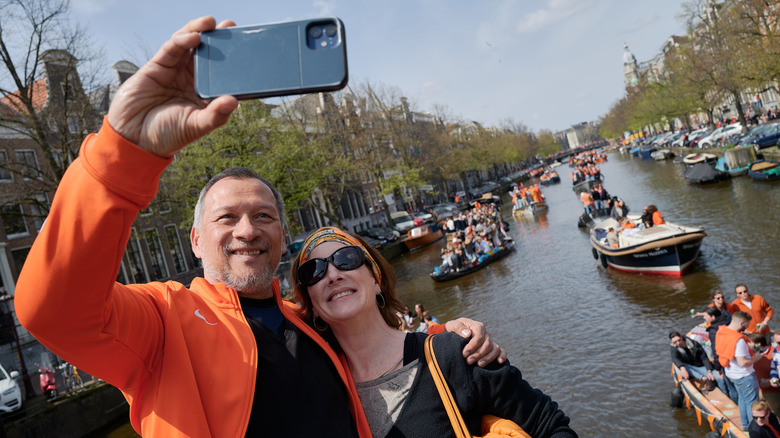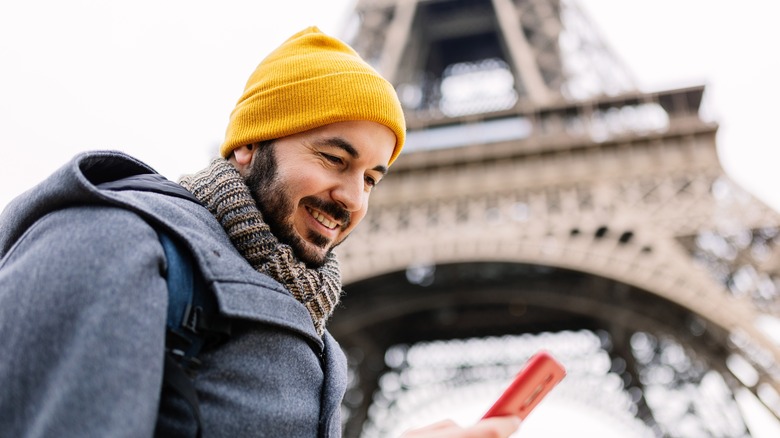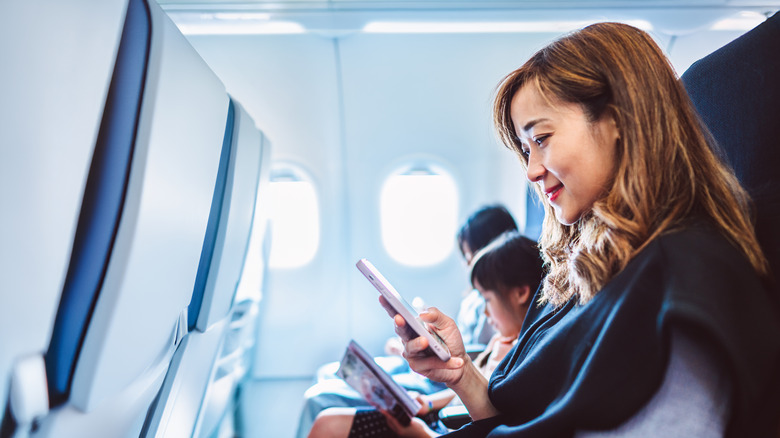The Unsettling Reason To Stop Posting Your Vacation Photos While You're Away
From gorgeous white sandy beaches to ancient ruins, travel takes us to incredible places we've never seen before. For many, part of the fun is taking photos to send home to friends and family. Years after the trip has ended, they remind us about the places we went and the things we saw along the way. As much as you might want to share your travel stories with the world, keeping your entire social media following updated on everything you do in real time can put you at risk of stalkers, thieves, or others who wish you harm.
To find out why posting pictures on social media while you're still on vacation can be an issue, Islands talked to security expert Joanne McNellis, the founder and CEO of Travel Safety Solutions, a company that specializes in keeping travelers safe and their homes secure while they're away. McNellis warned us that your vacation shots probably shouldn't hit social media until after your trip is over. She advised, "While it may be tempting, try to wait until you're home to post your photos. Avoid tagging the location in your photos or posts to help keep your whereabouts more private."
Try not to give away your exact current location
You may have heard that there are some destinations where you should avoid taking a selfie for safety reasons, but we're not talking about the risk of slipping off the ledge at the Grand Canyon or getting run down by a bike during the Tour de France. According to Joanne McNellis of Travel Safety Solutions, posting exactly where you are is a bad idea. Even if you don't tag your location and there's not an extremely distinctive landmark like the Colosseum behind you, she warned: "Some photos include geo-tags that can reveal your exact location, such as your hotel, Airbnb, or nearby restaurants."
While you may have considered how to protect yourself from pickpockets while traveling, you might not have thought about how to keep your home safe from break-ins. There are plenty of reasons to not want your real-time location public; it allows anyone to find you and it lets people know that your home is empty while you're away, which McNellis says can make your home an easier target for break-ins. While some keep their social media circle small and limited to those that they know in real life, many have a wider following and have their posts visible to anyone who searches for it. McNellis suggests going through your settings on every social media platform that you use so that you know exactly who might have access to what you share.
Consider limiting what you share about your trip in advance
In the excitement of planning for a trip, many post a lot of information about their itinerary in advance. However, according to security expert Joanne McNellis, you should be careful sharing too many specific details before you head out. "Avoid posting about upcoming travel plans altogether. Announcing when you'll be away, whether weeks or days in advance, or sharing updates while checking in at the airport with your airline details, is an open invitation to trouble."
McNellis also warned us that the absolute worst thing to share on social media are screenshots or photos of your boarding passes or passports, because they contain a lot of private information. As one unfortunate cruise passenger learned in May 2024, even sharing your booking number can be an upsetting mistake that can ruin your entire vacation, since it allowed someone else to log on and cancel the cruise completely. When in doubt, it's best to save your social media update for after you return. While that might seem less exciting, McNellis assures us that you might actually enjoy the time away from your phone, saying, "Spending your valuable vacation time posting photos and sharing experiences online can detract from the opportunity to fully immerse yourself in your trip."


